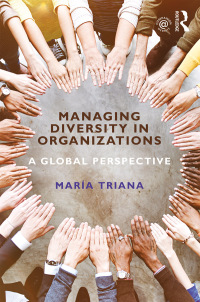In their 1994 manuscript related to population and genetics, Cavalli-Sforza and colleagues described ancestral analysis and genetics.
Question:
In their 1994 manuscript related to population and genetics, Cavalli-Sforza and colleagues described ancestral analysis and genetics. They assessed the genetic structure of the present population and traced ancestral roots for various groups. For example, the genetic group in the United States includes lineage tracing to Hispanic, European, American Indian, and African roots
(Cavalli-
Sforza, Menozzi, & Piazza, 1994). More recently, in a study conducted by Celera Genomics in the year 2000, it was discovered that human DNA is not highly different across populations. The Celera Genomics study concluded, “We all evolved in the last 100,000 years from the same small number of tribes that migrated out of Africa and colonized the world”
(Angier, 2000). Other scientists have stated that people from any part of the globe have about the same percentage of genetic variability (90%) which humanity offers. Also, genes accounting for people’s looks account for only 0.01% of human DNA (Angier, 2000).
Beginning in the 1960s scientists started thinking about race as a social construct instead of a biological concept. According to Cavalli-Sforza,
“From a scientific point of view, the concept of race has failed to obtain any consensus; none is likely, given the gradual variation in existence. It may be objected that the racial stereotypes have a consistency that allows even the layman to classify individuals. However, the major stereotypes, all based on skin color, hair color and form as well as facial traits, reflect superficial differences that are not confirmed by deeper analysis with more reliable genetic traits and whose origin dates from recent evolution mostly under the effect of climate and perhaps sexual selection” (Cavalli-Sforza et al., 1994).
Discussion Questions:
1. What do you think about the statement that human DNA is not highly different across people/races?
2. If people of all races are almost genetically identical and race is really a socially constructed concept rather than a genetic one, why do you suppose humans find it so important to create barriers between different groups of people and different geographic boundaries, etc.?
3. Scientists are consistently explaining that the planet Earth is one tiny speck in the vast expanse of the Cosmos. If extraterrestrial beings
(i.e., aliens) from another planet were to visit us next week, how do you think the ways in which we categorize all sentient beings (racial groups and nationalities from the planet Earth and aliens from outer space) would change? Who would be in the in-group, and who would be in the out-group?
Step by Step Answer:

Managing Diversity In Organizations A Global Perspective
ISBN: 9781138917026,9781317423676
1st Edition
Authors: Triana Maria





